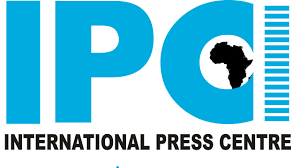The International Press Centre (IPC) is prompting the Nigerian government to recognize the importance of respecting legal and institutional frameworks that guarantee the right to information in the country in line with continental and international standards.
This was revealed in a statement signed by the Communications Officer, IPC Olutoyin Ayoade today as they celebrate this year’s International Day for Universal Access to Information (IDUAI) as declared by The United Nations Educational, Scientific, and Cultural Organization (UNESCO) and adopted by the UN General Assembly.
In a statement to mark the IDUAI day, IPC expressed concern about the state of Access to information in Nigeria despite adopting the national right to information law along with 17 African Union member states.
In 2011, the Nigerian Government signed the FOI Bill into law, thereby making Nigeria the ninth country in Africa and among the 127 countries in the world to have passed such legislation.
IPC’s Executive Director, Mr. Lanre Arogundade in the statement, regretted that the FOI Act has not had the desired impact due to the refusal of a number of Ministries, Departments, and Agencies to proactively disclose information about their activities while also failing to respond whenever journalists, civil society activists, and other Nigerians make FOI Act requests to that effect.
He noted that such conducts clearly undermine the provisions of sections (4) and (5) of the FOI Act that public Institutions shall make public records and information more freely available and provide for public access to public records and information. He added that they also constitute a sabotage of the constitution apart from negating the principles of the Open Government Partnership of which Nigeria is a member.
Against the background of the provision of section 22 of the Nigerian Constitution that the press shall monitor governance and hold government accountable, Mr. Arogundade said the occasion of the World Access to Information Day should also be used to reiterate the fact that free access to information is a catalyst of press freedom without which good governance would be a mirage.
He said further that Universal ATI is vital to the watchdog role of the media in keeping the public informed, educated and making the people know the day-to-day activities and dealings of those in government whether military or civilian, which further creates a platform for the citizens to express their concerns to the government. “This process saves lives, builds trust, and helps the formulation of sustainable policies”, he stressed.
In relation to violence against journalists and other media professionals. Mr. Arogundade noted that such acts constitute threats to freedom of expression in Nigeria.
“This year alone, the IPC has documented at least 40 media attacks and more recently the Nasarawa State Council of the Nigeria Union of Journalists (NUJ), lost one its members, former treasurer, Benjamin Ekom to an attack and brutal killing by unknown gunmen at his residence in Washo village, Nassarawa-Eggon Local Government Area (LGA), of the state”, he lamented.
He, therefore, called on the government to ensure protection for journalists and whistleblowers who are dedicated to promoting democracy and social justice.
As for journalists, he said they should keep engaging in investigative journalism, so as to prevent abuse of office.


Comments 1